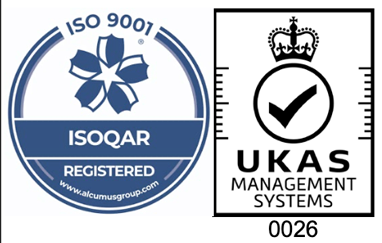What is neoprene rubber used for?
3rd March, 2021
Neoprene rubber, also known as polychloroprene rubber, offers excellent resistance to a variety of forces, including heat, flexing, vibration, and hydrocarbons.
So, what is neoprene rubber used for? In this article from we find out its properties and what it’s used for here.
What are the advantages of neoprene rubber?
Neoprene rubber (chemical name polychloroprene) comes from a group of synthetic rubbers produced by polymerising the organic compound chloroprene. When used for sealing and insulation, neoprene rubber material offers multiple advantages, including:
- Resistance to petroleum-based products, greases, and oils
- Resistance to water, ozone and weather
- Resistance to temperature ranges between -35°C and +100°C
- Resistance to damage from twisting and flexing
- Polymerisation – can be made into custom compounds and have additional material properties added to it
Neoprene rubber is also extremely chemically stable and amongst great insulation properties, exhibits great resistance against solvent damage. It’s able to handle adhesives, as well as provide cushioning, protection against vibration, and abrasion resistance.
What is neoprene rubber used for?
You’ll find neoprene in a variety of applications from a wide variety of sectors, including – but not limited to -:
1. Mobile technology
2. Defence
3. Medical and Healthcare
4. Stainless Steel
5. Food Equipment (FDA-approved rubber)
6. Aerospace
On its own, neoprene is commonly used to mass-produce reliable gaskets, cable jackets, tubing, Orings, seals, tire-sidewalls, gasoline hoses, wetsuits, and orthopaedic braces. You’ll also find it as a base resin in electrical insulations and coatings, and adhesives, thanks to its wide range of useful properties and reasonable price.
Can neoprene rubber be modified for specialist applications?
Neoprene rubber on its own (or ‘commodity rubber’) is not particularly expensive and often used for general purposes as it is mass-produced as a standard synthetic elastomer.
However, some applications require specialist rubber solutions. In these cases, specific approvals and certifications may need to be sought. Here are a few examples:
- UL 94
This standard, released by the Underwriters Laboratories of the US, determines a plastic-based material’s tendency to either extinguish or spread a flame once ignited. It refers exclusively to rubber or plastic found in electrical enclosures and can be applied to modified neoprene. - ASTM E162
This test measures and compares the surface flammability of a material when exposed to a prescribed level of radiant heat. Neoprene rubber has low flammability. - SMP 800C
This test looks for toxic gas generation potential of a material. Polychloroprenes like neoprene rubber contain a high chlorine content, which can be dangerous when heated up and breathed in as a gas. Therefore, neoprene must be modified in order to meet this requirement, especially for applications in the mass transit industry such as metros, buses, and trains.
How are neoprene rubber products manufactured?
Neoprene rubber will typically arrive at a manufacturing facility in the form of a roll or sheet, or sometimes even a fabric.
It can be moulded and extruded to meet a variety of client briefs, and comes in three types of material:
- Solid
- Sponge
- Foam
Rubber foams come in two types – closed cell, and open cell. Closed cell neoprene rubber is waterproof, while open cell neoprene features interconnected pockets of air which allow gas and fluids to pass through the product (as long as it is not fully compressed).
Related Posts on Neoprene Rubber
Bespoke Neoprene Rubber Products from Aquaseal Rubber
Aquaseal rubber can design, manufacture, and supply custom-fabricated neoprene products – from orings and gaskets, to insulation and sealing.
If you’re looking for a rubber company where product quality and customer service comes first, feel free to call 0191 266 0934 or drop an email to enquiries@aquasealrubber.co.uk.


